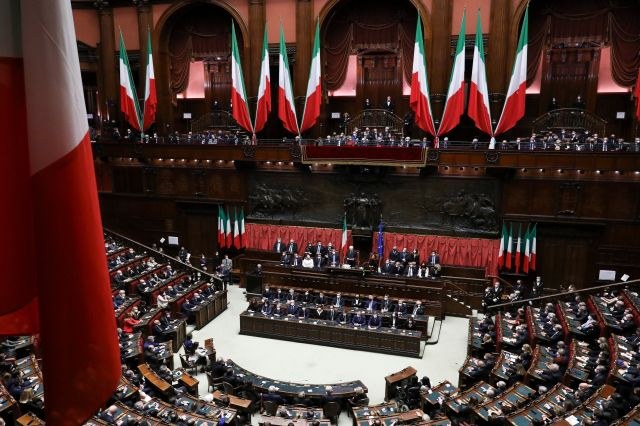Genai4lex-b is one of the three winning projects of the call for proposals promoted by the Chamber of Deputies and coordinated by the University of Bologna’s Research Institute for Human-Centered Artificial Intelligence (Alma AI). The aim of this project is to support parliamentarians through artificial intelligence, bringing innovation to society with balance and benefits for all.
Genai4lex-b was developed by a group of universities (University of Bologna, LUISS CESP – Center for Parliamentary Studies, University of Verona, University of Turin) together with CNR’s Institute of Legal Informatics and Judicial Systems. The project was chosen among 28 generative AI project proposals developed by fifteen universities and research centres. A fundamental contribution came from three spin-offs: BitNomos, Aptus, ASIMOV AI.
It was Professor Monica Palmirani, from the University of Bologna, who designed and led the project, which benefited from the participation of more than 34 colleagues. As these topics require a multitude of skills that range from Constitutional Law, to Philosophy of Law, Linguistics, Ethics, Informatics, Engineering, Communication Sciences and reorganisation of processes and skills, and Psychology, Genai4lex-b is based on a hybrid and interdisciplinary AI approach, which leverages different technologies and is the result of 20 years of work in the field of legislative legal informatics.
Another key point of the project was to analyse the skills required to use these tools consciously and avoid distortions in their use. The project also includes a legal analysis of compliance with the European Artificial Intelligence regulation and the guidelines for ethical AI.
The expected tool prototypes are three and can provide support in drafting legislative texts, analysing amendments and legal references, and verifying the compliance of the text with the pre-existing regulatory framework.
The multiple and varied sources used have been translated into an international judiciary XML standard (Akoma Ntoso – LegalDocML OASIS), which ensures interoperability and clear graphic visualisation to decision-makers. This approach allows the final user to identify the most suitable regulations, similar laws, and Constitutional Court decisions relevant to the intended bill. Lastly, the annotated legal references allow for hypertextual navigation between different sources and a better understanding of the legal connections, including through the different updated versions of the bill.
In addition, Genai4lex-b enables the summarisation of committee amendments using generative LLM tools, providing a clear summary to decision-makers and assisting experts in the production of abstracts (ASIMOV AI, LUISS).
Lastly, thanks to the deductive-logical engine Houdini, which uses an international XML standard to model legal norms (LegalRuleML OASIS), it is possible to verify whether the proposed law complies with the policy and strategies defined by decision-makers (University of Verona).

